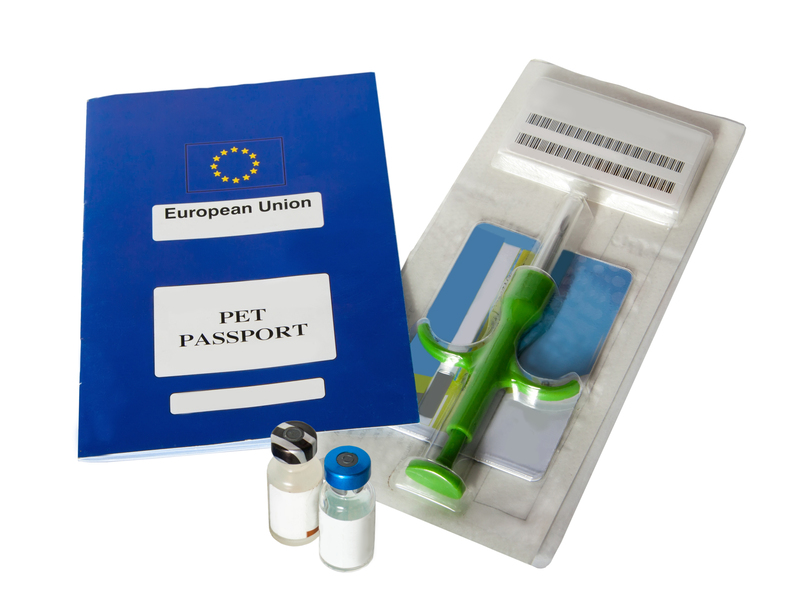Expert Advice on Storing a Freezer Safely When Not in Use
Posted on 03/06/2025
Expert Advice on Storing a Freezer Safely When Not in Use
Freezers are essential appliances in most households, providing long-term food storage and preserving freshness. However, there may come a time when you need to store your freezer--whether due to a move, seasonal changes, renovations, or simply not needing it for a while. Properly storing a freezer when not in use is crucial to ensure its longevity, prevent unpleasant odors, and maintain its efficiency. This comprehensive guide offers expert advice and step-by-step instructions on the best practices for storing your freezer safely when it's not in use.
Why Proper Freezer Storage Matters
Careless storage of your freezer can lead to numerous problems, like mold growth, unpleasant odors, electrical faults, rust, and even pest infestations. Taking the right steps to store your freezer safely when not in use ultimately saves time, money, and hassle when it's time to use the appliance again. Plus, good storage practices ensure your freezer runs efficiently and lasts much longer.

Step-by-Step Preparation: How to Safely Store a Freezer When Not in Use
1. Empty the Freezer Completely
- Remove all food items. Discard anything expired or donate perishable goods that you cannot use before storage.
- Detach removable parts, such as shelves, drawers, and bins. These should be cleaned and dried separately.
2. Unplug and Defrost the Appliance
- Unplug the freezer from the electrical outlet to avoid any risk of electrical shock.
- Open the doors and allow the freezer to defrost naturally. Speed up defrosting by placing towels or pans of hot water inside.
- Carefully collect water from melting ice and dispose of it promptly to avoid puddles and mess.
3. Clean the Interior and Exterior Thoroughly
- Mix warm water with a small amount of mild dish soap. Use this solution to clean the inside and outside of the freezer.
- Pay extra attention to corners and door seals where mold and mildew can form.
- For a deep clean, use a mixture of one tablespoon of baking soda in a quart of warm water to deodorize and sanitize.
- Make sure to completely dry all surfaces. Moisture can lead to mold, mildew, and rust during storage.
- Wipe and dry any detachable shelves and drawers as well.
4. Secure Power Cord and Removable Parts
- Coil the power cord neatly and secure it using a twist tie or zip tie. Prevent tripping hazards and damage.
- Store shelves and bins inside the freezer, or wrap and store them separately in a dry location.
5. Propping the Door Open
Never leave the freezer door sealed shut during storage. This can trap moisture, leading to mold, mildew, and bad odors. Instead:
- Prop the door open slightly (about 1-2 inches) using a towel, rubber doorstop, or a wedge.
- This allows air circulation inside the freezer, keeping it dry and fresh during long periods of non-use.
6. Choosing the Right Storage Location
- Select a cool, dry, and well-ventilated area--such as a garage, basement, or storage room.
- Keep the freezer out of direct sunlight to avoid heat damage and fading.
- Avoid damp or humid spaces, which can encourage mold and corrosion.
- Ensure the surface is level to prevent any internal damage to your freezer's components.
7. Close Monitoring During Storage
- Check the freezer every few weeks for moisture, pests, or odors.
- If you notice condensation, mold, or unwanted smells, wipe them down immediately and improve air circulation if possible.
- Keep absorbent products, such as activated charcoal or baking soda boxes, inside to absorb lingering smells and moisture.
Additional Tips for Storing a Freezer Safely When Not in Use
Addressing Potential Issues
- Consider using appliance covers to prevent dust accumulation. Opt for breathable fabrics to avoid moisture traps.
- Keep the freezer slightly elevated using wooden planks or blocks to prevent contact with damp floors, especially in garages or basements.
- Label the appliance as "Not in Use" with a visible sign to discourage accidental plugging or moving.
- If your freezer has a water line (e.g., ice makers), ensure proper disconnection and drainage before storing.
Seasonal and Long-term Storage
- For seasonal storage: Repeat the cleaning and drying steps before each period of non-use to ensure a smooth restart.
- For long-term storage: Check manufacturer's recommendations. Some brands may have specific instructions or precautions for extended non-use that help increase the freezer's lifespan.
Pest and Rodent Prevention
- Inspect your chosen storage location for any signs of rodents or insects.
- Plug any holes or cracks in the storage area walls or floors to deter pests from entering.
- Keep all food remnants out of the freezer--clean it thoroughly, as even small crumbs can lead to infestations.
Common Mistakes to Avoid When Storing a Freezer
- Leaving food inside: Always remove and dispose of all perishables to prevent bacterial growth and foul odors.
- Storing with the door fully closed: This traps moisture, leading to mold, mildew, and rust.
- Neglecting regular checks: Failing to monitor can result in unnoticed moisture buildup, pest infestations, or structural issues.
- Storing in extreme temperatures: Avoid places that freeze in winter or get excessively hot in summer, as temperature extremes can damage seals and electronics.
- Skipping cleaning: Dirt and residue can harden and produce odors or stains after prolonged storage.
Restarting the Freezer After Storage
Once you're ready to use your freezer again, follow these steps for a smooth reactivation:
- Remove any air fresheners, baking soda, or charcoal placed inside during storage.
- Wipe down the interior and exterior surfaces with a mild cleaning solution, even if you cleaned it before storage.
- Allow the appliance to air for a day or two, with the door open, to ensure total dryness and freshness.
- Reinstall shelves and bins if you removed them earlier.
- Plug in the freezer and set it to the correct temperature, per the manufacturer's recommendations.
- Wait several hours for the freezer to reach the desired temperature before loading any new food.
Frequently Asked Questions About Freezer Storage
1. Can I store a freezer in an unheated garage or shed?
While many people store freezers in garages or sheds, it's important to recognize the risks. Extreme cold can cause the compressor oil to thicken, potentially shortening your freezer's lifespan. Likewise, excessive heat can damage seals and electrical components. If possible, choose a location with moderate, stable temperatures for optimal freezer storage.
2. Should I cover my freezer while it's stored?
Using an appliance cover can protect your freezer from dust, debris, and accidental bumps. Ensure the material is breathable to prevent moisture and mold buildup.
3. What if I can't prop the door open?
For chest freezers that don't allow easy propping, place absorbent materials like boxes of baking soda, silica gel packs, or activated charcoal inside to absorb moisture and odors. Check the freezer regularly for freshness.
4. Is it necessary to clean and disinfect before storage?
Absolutely! Cleaning and thoroughly drying your freezer is one of the most critical steps in the storage process. It prevents lingering bacteria, mold, and odors that can become very difficult to remove later.
5. How often should I check my stored freezer?
Check your freezer at least once every month, especially in the first few months. Look for signs of moisture, pests, or odors and address any issues immediately.

Quick Reference Guide: Do's and Don'ts of Storing a Freezer Safely
- Do: Empty and defrost before storing.
- Do: Clean and dry all surfaces thoroughly.
- Do: Prop the door open for airflow.
- Do: Store in a cool, dry, and well-ventilated area.
- Do: Use moisture or odor absorbers inside.
- Don't: Store with food inside.
- Don't: Leave the door fully closed or latched.
- Don't: Place in high humidity or direct sunlight.
- Don't: Store directly on damp floors--use a platform.
- Don't: Neglect regular checks during storage.
Conclusion: Store Your Freezer with Confidence
Knowing how to store a freezer safely when not in use is essential for any homeowner who wants to protect their investment and ensure smooth operation in the future. With expert tips--from cleaning and drying to choosing the right storage spot, and remembering to prop the door open--you can avoid odor, mold, rust, and mechanical problems. Take the time to perform each step carefully, and your freezer will remain in excellent shape, ready to serve you whenever you need it again. Proper freezer storage not only protects your appliance, but also brings peace of mind, energy savings, and convenience for years to come.
Latest Posts
Streamline Your Move: Expert Tips for Effective Pre-Move Decluttering
Expert tips for a spotless home before you move
Streamline Your Move with Easy Packing Methods



